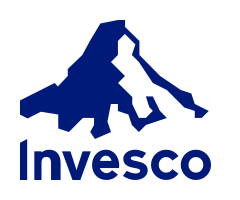Invesco Perpetual UK Smaller Companies (IPU) delivered total NAV and share price returns of (23%) and (34%) over its interim results period to 31 July 2020. By comparison, the benchmark Numis Smaller Companies Index (excluding Investment Companies) returned (21.2%). IPU notes that income levels are currently at half the level they would ordinarily expect.
Since the period-end and up to 9 October, IPU’s NAV increased by 6.8%, the share price total return was 5.5%, and the benchmark total return amounted to 3.7%.
‘Initial bounce focused on lower-quality value companies’
In the following extract IPU’s managers, Jonathan Brown & Robin West, reflect on the period’s performance drivers and detractors: “The initial market reaction was to place very high valuations on companies that could continue to grow earnings. The subsequent market bounce centred on cheap, and in our opinion, lower-quality stocks. Our strategy of focussing on fundamentally high-quality businesses at sensible valuations lagged the market. However, we continue to believe maintaining this focus is the best way to deliver long term returns for our shareholders.
The portfolio benefitted from exposure to the technology and healthcare sectors but was hurt by its exposure to the consumer goods sector. Within the smaller company sector, healthcare was the only area to register a positive return. The weakest areas were the oil and gas sector, due to the collapse in the oil price, and industrials which suffered due to the collapse in economic activity during the lockdown. The UK economy suffered its biggest slump on record, as the economy contracted by over 20% in the second quarter of the year.
At the individual stock level, in common with the market, the majority of portfolio holdings declined over the period. However, the best performers included: Keywords Studios (+51%), which provides outsourced services to the computer games industry. The sector fared well through the crisis and Keywords Studios continued to grow its presence in areas such as art creation, language translation and games engineering. Kainos (+42%), an IT services business which reduces administrative costs for the government by creating systems that allow people to ‘self-serve’ in areas such as paying their road tax, continued to perform well. The company is seen as an ongoing winner as the public and private sector continue to modernise their interactions with customers. Building supplies company, Grafton (+62%), is a holding that we added during the March sell-off. The stock bounced hard as it became apparent that the construction and DIY sectors would lead the recovery from the crisis.
The portfolio holdings that fared poorly over the period included: Arrow Global (–72%), a debt recovery business. It is likely to recover a lower level of money from borrowers over the coming year as unemployment rises. However, we added to the holding during the sell-off because its financial position remains manageable and the shares had become over-sold. Johnson Service (–56%), is a provider of linen to the hotel and restaurant sector. This sector was effectively shut down during the crisis which had a severe short-term effect on trading. It is another holding we added to in the sell-off due to its strong financial position and the likelihood that it will emerge from the crisis with an enhanced market position as smaller, weaker competitors fall by the wayside. Housebuilder, Vistry (–56%), formerly known as Bovis Homes, had been a strong performer for us but fell along with the sector as investors grappled with the implications of the crisis. The evidence since the end of the national lockdown suggests that people are still keen to buy their own house. However, we chose to reduce the holding following a partial share price recovery due to our concern about the effect of rising unemployment on future housing demand.”
‘Some time for GDP to return to historic levels’
In their discussion on IPU’s outlook, the managers add that “The COVID-19 pandemic remains the dominant feature of the investment landscape. Although it has taken a significant toll on economies and markets, government support programmes have mitigated the most immediate impacts of the crisis. A reduced level of consumer spending during the lockdown has, in aggregate, strengthened household finances. However, the full scale of job losses will not be fully apparent until the various national furlough schemes have ended. Therefore, it will take some time for a clear picture of demand to emerge. Clearly, the onset of a significant ‘second wave’ of infection will have profound implications, but we are hopeful that a sustained recovery is now underway. Nevertheless, company profitability and balance sheets have taken a hit, and therefore we believe it will take some time for GDP to return to historic levels.
Whilst the current uncertainty is unsettling, we remain of the view that investing in fundamentally good quality businesses at sensible valuations is the correct strategy. We will continue to take advantage of opportunities that the heightened level of market volatility presents to us. We are hopeful that as the current difficulties abate, we can resume on a profitable path for our shareholders.”
IPU: Invesco Perpetual UK Smaller Companies held back by consumer goods holdings
